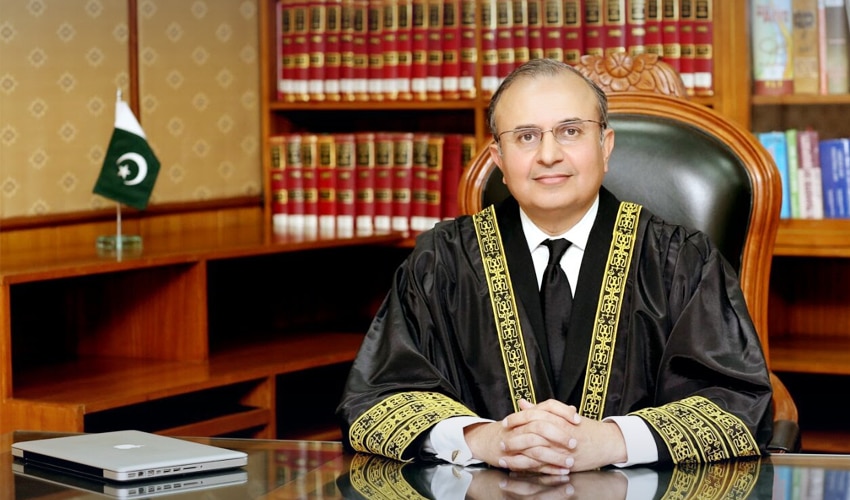Shah suggests criteria for constitutional bench appointments.
Criticises past ad hoc judicial bench formations.
Judicial Commission meets to review proposed appointment rules.
ISLAMABAD: Justice Mansoor Ali Shah has opposed the inclusion of intelligence agencies in the process of appointing judges, cautioning against the potential misuse of such a practice.
His remarks come in a letter addressed to the Judicial Commission of Pakistan’s (JCP) secretary, ahead of a key meeting chaired by Chief Justice Yahya Afridi.
“Allowing civil intelligence agencies a say in the appointment process is prone to misuse, especially when primacy in the Commission is enjoyed by the Executive,” he wrote.
The senior puisne judge added: “[It] must be avoided. Judicial members may rely on their personal information collected from their judicial peers and otherwise.”
He suggested that the commission adopt a clear mechanism for selecting judges for constitutional benches, including evaluating the number of constitutional interpretation judgments authored by candidates.
Shah criticised the commission’s past practice of forming constitutional benches without predefined criteria, noting the lack of a structured approach to such critical appointments.
He emphasised that judges’ inclusion in constitutional benches should follow measurable and fair standards.
The Judicial Commission is meeting today to review proposed rules for judicial appointments. Justice Shah has also provided general recommendations on refining these rules to ensure independence and accountability in the judiciary.
This is the second time Justice Shah has expressed his concerns regarding the 26th Constitutional Amendment, under which the JCP has been constituted.
In his letter to Justice Jamal Khan Mandokhail, who is a chair of a JCP’s subordinate body constituted by the Chief Justice of Pakistan (CJP) to prepare draft rules of the national commission for judges’ appointments, the senior puisne judge pointed out “grave risks” posed by the “unprecedented shift” in the composition of the JCP.
These “risks” as mentioned by Justice Shah, include the potential for “political appointments and the packing of courts with judges lacking an ideological commitment to the rule of law”.
Prior to his letter to Justice Mandokhail, Justice Shah had written a letter to the chief justice last week and sought the postponement of the JCP meeting, as numerous petitions challenging the 26th Constitutional Amendment were still pending before the apex court.
However, CJP Yahya Afridi made it clear that the commission did not have the scope to discuss the 26th Constitutional Amendment.

